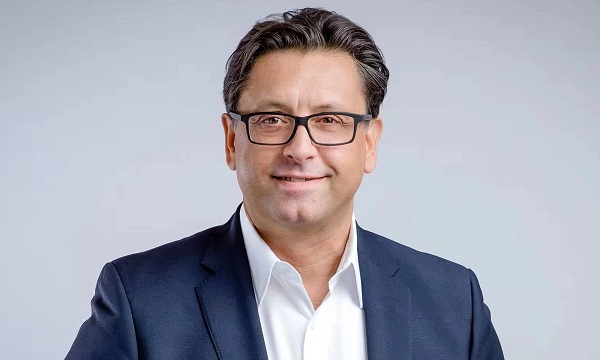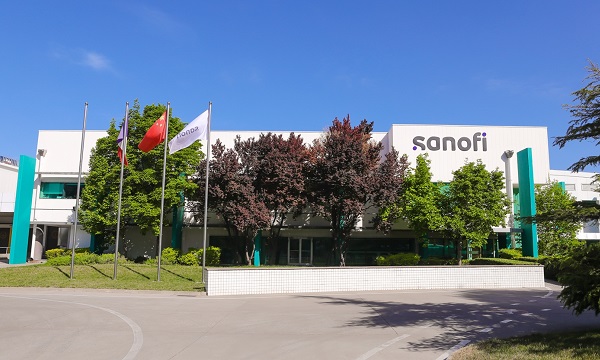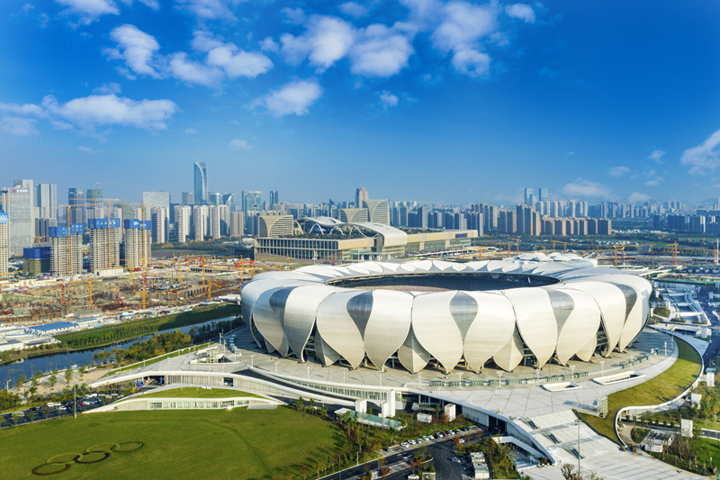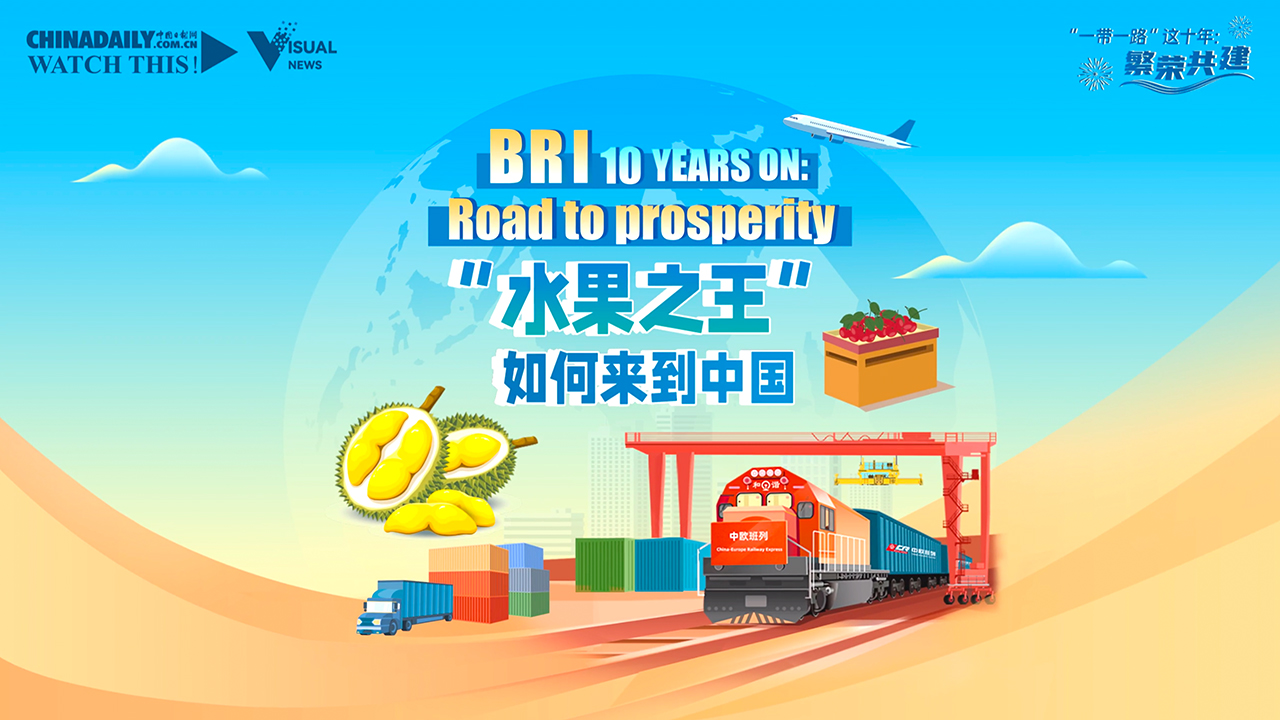Sanofi's increasing investment demonstrates confidence in the Chinese market

Paul Hudson, Chief Executive Officer of Sanofi Photo: Courtesy of Sanofi
In 2023, a number of high-profile executives from global multinational companies have visited China in succession, giving an indication of multinational companies' firm confidence in China's economic prosperity. In June, Paul Hudson, CEO of Sanofi, a leading global healthcare company, led the "Strongest Executive Lineup" from the company's Global Executive Committee on a China visit. Sanofi, a multinational pharmaceutical enterprise that has been deeply rooted in China for more than 40 years, has engaged in much dialogue with and conducted many visits to China in 2023. These frequent interactions at the highest levels represent Sanofi's confidence in long-term investment in the Chinese market.
As one of the first multinational companies to enter China after the country's reform and opening-up, Sanofi's China footprint has grown over the years, from research and development to production, from digital healthcare to innovation cooperation. Currently, Sanofi has 12 multi-mode offices, three manufacturing sites, four R&D bases, and one digital innovation center in China. Data shows that Sanofi China's sales reached 3.12 billion euros ($3.47 billion) in 2022, up 6.2 percent year-on-year. As China is globally the second largest market of Sanofi, its importance is self-evident.
"Paying a second visit this time, we could see that the Chinese market is still full of vitality, which further strengthens our confidence," said Paul Hudson. "We have gained a deep sense of China's determination to promote the construction of the public health service system - by staying focused on creating a new pattern of high-level opening up to the outside world, actively improving the environment for foreign investment, and implementing preferential policies. These include priority review and approval for innovative medicines, accelerated timelines for the introduction and approval of new medicines from multinational pharmaceutical companies and increased convenience for investment in key economic regions such as the Greater Bay Area and the Yangtze River Delta."
As part of the first wave of multinational enterprises to spread its roots in China, Sanofi is committed to practicing transformation, including accelerating the launch of innovative products and striving to improve their accessibility in China. In addition, Sanofi has reached a strategic cooperation agreement with Boao Lecheng to build a "fast track" for the introduction of innovative products.
"China has played a role in the growth of our specialty care business - the fastest growing at Sanofi," said Bill Sibold, executive vice president and head of specialty care at Sanofi. "Throughout years of development in China, we have endeavored to address the unmet needs of patients, working closely with the government and industry partners to jointly improve the accessibility and affordability of innovative specialty medicines. In the coming years, we hope to accelerate the introduction of more 'first-in-class' and 'best-in-class' medicines to meet the urgent needs of the Chinese market."
Every step of Sanofi's development in China has reflected the "China Speed" for accelerating accessibility of innovative products. At the global level, Sanofi has been seeking to bolster its pipelines through external partnerships, such as those with Kymera Therapeutics, Principia Biopharma, and Kymab, where through strategic collaboration or acquisition, Sanofi has been able to include more solutions with "first-in-class" or "best-in-class" potential into its R&D pipelines. At the same time, Sanofi is also actively working in additional healthcare fields. For example, taking the opportunities brought by the "early access" policies of the Guangdong-Hong Kong-Macao Greater Bay Area, Sanofi is committed to bringing innovative solutions to China, and to accelerating the development of related areas by providing sustainable and transformative options.

Sanofi Beijing manufacturing site Photo: Courtesy of Sanofi
In recent years, China has made great achievements in development of its public health system and improving its medical system. The implementation of the "Healthy China 2030" initiative has provided broad space for multinational companies. Aware of the huge demand and booming potential of the Chinese market, Sanofi has continuously increased its investment over the years. For instance, it invested 1.2 billion yuan ($167 million) in the building of a vaccine factory in the Greater Bay Area, which is the first and currently still the only foreign-funded vaccine factory in China, where it has realized the localized production of influenza vaccine. Sanofi has also joined hands with the Shenzhen Municipal Government to sign a Sino-French strategic cooperation agreement on vaccine innovation, which explores and deepens cooperation between China and France on public health. In addition, Sanofi recently supported the 2023 GBA Vaccine Conference and cooperated with the Chinese Preventive Medicine Association in accelerating the introduction of advanced technology and innovative products.
"Given our 40-year partnership with China, we have a deep appreciation of the uniqueness of the world's second largest economy with its large market size and rapid pace of innovation. China's vaccine industry is currently at a tipping point, and with our development expertise, we look forward to collaborating on new ideas and possibilities in support of public health," said Thomas Triomphe, executive vice president and head of vaccines at Sanofi.
With the rising importance of the Chinese market, a change from "In China, For China" to "In China, For the World" has occurred. In line with this, Sanofi aspires to become a "localized multinational company," and the question of how to better combine an international vision with local market practice is one that Sanofi is always thinking about. In June, Sanofi Beijing Manufacturing Site held the launch ceremony for local production of a new product variety. With nearly 500 million yuan of investment, the project aims to build a new sterile filling line, upgrade and transform the existing assembly line, and continue to expand the local manufacturing capacity.
Olivier Charmeil, executive vice president and head of general medicines at Sanofi, said, "The local production of a new variety is another milestone for our development in China, as well as another good example of the sustained commitment to the market. By expanding the local production system, accelerating the introduction of diversified and high-quality innovative product portfolio and solutions, and working together with multiple partners, we are dedicated to making contributions to China's healthcare industry and Healthy China goals.
As Chinese consumers' awareness of daily health management has been comprehensively increased, self-care has gradually been integrated into daily life, and Sanofi is also enhancing its efforts in building a strong consumer healthcare business to help more people play an active role in their own health. In March, Sanofi Consumer Healthcare officially announced its strategic investment in Cathay Capital. At the Consumer Expo in April, Sanofi's established probiotic brand, Enterogermina, made its debut in China. In May, Sanofi announced the launch of three probiotic products under the Enterogermina brand in the Chinese market, and also announced its strategic cooperation with JD Health, IFF, and Doctor Dingxiang, injecting new momentum into industry advancement.
"Sanofi Consumer Healthcare has long been committed to providing consumers with high-quality and innovative health products and has joined forces with various parties to build a sustainable ecosystem for CHC," said Julie van Ongevalle, executive vice president and head of consumer healthcare at Sanofi.
"As a market with huge demand for healthcare products, we hope to become a hub of the industrial circular ecosystem, offering better and quality choices in consumer healthcare products in China."
During the local development in China, Sanofi has actively responded to China's strategic goal of "Dual Carbon," by adhering to green production and supply chains. For example, Sanofi has built photovoltaic roofs at its Beijing and Hangzhou manufacturing sites, and will fully apply green power to industrial production in the future. The Beijing site is driven by the concepts of "Green Production" and "Green Development." It was named as a "Green Factory" by the Ministry of Industry and Information Technology.
"Sanofi will continue to invest in R&D, advanced manufacturing and supply chain capabilities, as well as talent training, in the hope of bringing the 'miracles of science' to the Chinese people as quickly as possible. In the meanwhile, we will actively promote environmental protection measures in our operations' processes to help achieve our carbon emission goals. We look forward to working with all stakeholders to continue contributing to China's healthcare industry development. Under China's 'Dual Carbon' goals, Sanofi also proposed its own Sustainable Development Goals: to achieve Carbon Neutral status by 2030, and Net Zero by 2045," said Brendan O'Callaghan, executive vice president and head of manufacturing and supply at Sanofi.
"The resilience of China's economy and the friendly business environment creates more opportunities for our future business development and local cooperation. Now and in the future, the Chinese market will play a key role in Sanofi's development," Paul Hudson said, concluding that Sanofi is committed to continue supporting its development, accelerating the introduction of innovative products and establishing a new digital ecosystem. "Sanofi continues its plans to introduce at least 25 innovative products from 2020 to 2025, bringing health to more Chinese people."
Sanofi is committed to continue supporting China's development and innovation ecosystem.
-
Hangzhou's foreign trade thrives, defying challenges
January 18, 2024
-
Hangzhou ranks fifth in national innovation capability evaluation
January 16, 2024
-
Hangzhou welcomes massive addition to natural landscape
January 10, 2024
-
BRI 10 YEARS ON: Road to prosperity
October 16, 2023



